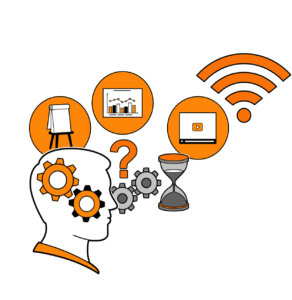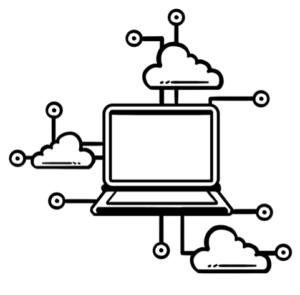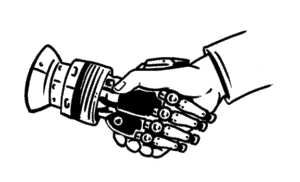Knowledge Management 4.0
Knowledge is becoming increasingly interconnected. Are you prepared for the change?

Industry 4.0 is the latest buzzword in the changing landscape of industry. In times of increased digitalisation and networking, the term covers various aspects including Management 4.0, Employment 4.0 and Corporate Culture 4.0. In the process, Industry 4.0 influences organizational structures, and also affects how we learn and the way in which we access knowledge. Important aspects for success in times of constant change and progress are professional development and extensive know-how. Hence industry 4.0 has an impact upon our interaction with knowledge and learning. The following 7 aspects are crucial and must receive attention in Knowledge Management 4.0:

1) Knowing how to…
Effective Knowledge Management 4.0 is grounded in the mastering of techniques to access information. Knowledge databases and interactive learning software applications are tailored towards individual learning aspects and learning styles and will flourish in businesses during the course of Industry 4.0. As a result, knowing your target group will be essential when choosing digital media and creating learning processes. Businesses are required to use the newest IT trends through the SMAC approach to be equipped for the change.
More than anything, quick and easy access to the diversity of information must be guaranteed. What do I need to know in certain situations? Whom do I contact if I have questions? What steps do I take if I make an incorrect decision? Who is my contact person within the department XY? Ensure that every employee has access to this information. Yellow Pages provides useful support as an expert directory.
 2) Adaptability
2) Adaptability
Developments are fast-paced and exist in constant exchange with one another. Therefore it is essential for HR management to be able to quickly adapt and adjust to avoid miscommunication and process errors and to stay close to the practical side of business.
As part of knowledge management 4.0, e-learning can easily adjust to the needs through learning nuggets in form of explainer videos. As mini learning activities with a manageable amount of details, they are quickly created and easily exchanged.
 3) Location and time flexibility
3) Location and time flexibility
Learning activities and knowledge databases as part of knowledge management 4.0 are mobile and time-independent. The working environment of your employees is becoming more flexible. Additionally, home office and business trips widen the spectrum of the working environment. This change results in employees accessing information on the go and thus requires learning on demand.
Means of choice is hence to manage information and data cloud based. Groupware systems such as a corporate email system, mutual online agendas and group management tools promote mobile team communication and a well organised structure.
4) Situativ and adaptive
The ‘active learning’ concept confirms the practicality of hands-on and relevant learning. Information and performance procedures show increased recollection of information when linked with specific situations and emotions. Motivation increases and employee performance becomes more confident. Hence event bound knowledge mediation is a fixed component in knowledge management 4.0. The recognition process of determining potential errors and arising questions are likewise recognized more easily and learning activities can be adjusted immediately. Errors in the real performance process are hence avoided.
5) Individuality
Learning activities should be tailored to the individual employee, as every human possesses individual learning abilities and strengths. Providing various learning methods in Knowledge Management 4.0, creates fluid learning styles and speed. This correlates with self-paced learning and promises successful time management, saving costs, strengthening self-assessment as well as boosting self-confidence.
 6) Hybridity – teaming up human and machine
6) Hybridity – teaming up human and machine
Technical modifications not only strengthen the level of digitalisation. They also opens up new possibilities to unify human and machine. This linkage promotes a data flow. Just-in-time. Information can be digitally outsourced and manually be retrieved when needed. Henace, In line with knowledge management 4.0, employees create ‘hybrid teams’ with computers. Augmented Intelligence and Cognitive Computing have become a reality.
These conditions provide you with an overview of how to set goals for your company to flourish in Knowledge Management 4.0. In many cases they are tied to new technologies and tools that must initially be acquired but essentially, facilitate performance processes. Process efficiency can therefore be increased and your employees’ competence and satisfaction heightened.